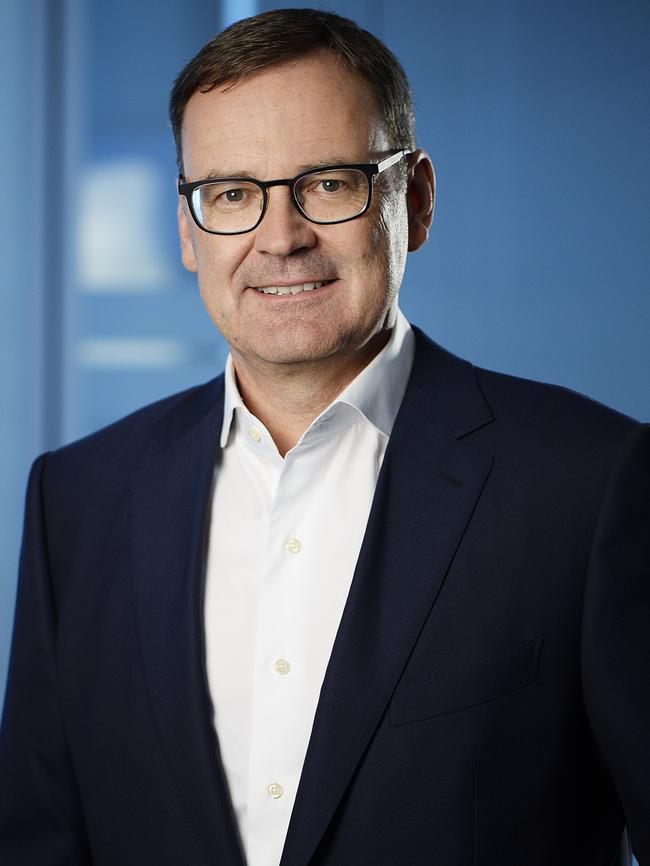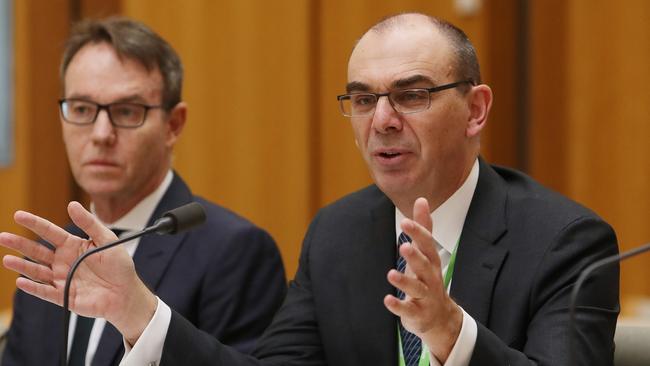
Cairns, the former long-serving boss of brewer Lion, found a company bleeding cash after making one of the worst bets in modern Australian business.
It lacked a coherent strategy, the boardroom was dysfunctional, the chief executive had resigned but remained as a lame duck boss and another senior division head – the Big W boss – had quit for health reasons after a verbal complaint was made against him.
An ill-timed and costly foray into hardware was aimed at trying to take on rival Wesfarmers and its Bunnings business. It was Cold War era stuff – the idea of launching Masters was aimed at distracting rival Wesfarmers just as it was gaining momentum in rebuilding its Coles supermarket franchise.
Woolworths had imported the slick Masters concept from the US and dropped it into a market where Australians like their hardware without frills but a sausage sizzle in the carpark.

Masters had nearly 60 stores in when Cairns took charge, and was generating annual losses of $250m while soaking up shareholder funds as well as management time that should have been used to build a digital platform for the supermarket business.
Woolworths’ nearly 200,000 staff were unmotivated and the supermarket pricing was way above the market. Sales were going backwards while Coles was moving ahead.
The biggest insult was the once great Woolworths having its prized “A” credit rating bumped down to “BBB”, putting it an uncomfortable step closer to junk.
‘Clearly stalled’
Cairns on Tuesday flagged his retirement at the retailer’s annual meeting in October.
About to turn 70, he recently retired from the Macquarie Group and Origin boards.
His replacement at the retailer, Scott Perkins, continues the influence of the Origin boardroom over Woolworths. Perkins, a former investment banker, is chairman of Origin, a role Cairns previously held.
Perkins, who is also on the Brambles board, joined Woolworths as a director at the end of 2014, just as the company was entering its downward spiral.

On being named as chairman in 2015, Cairns said the retailer had clearly stalled after losing sight of customers while taking its suppliers for granted, which had led to toxic relationships. He said the execution of Masters rollout had let the company down. Fundamentally Woolworths had “stopped listening”.
“Now it is the time to move on, as we cannot change the past, but we must learn from it, and urgently address the future,” he told shareholders, adding that he promised to return Woolworths to its rightful position “as a great company”.
Cairns spelt out three clear priorities. First, to focus the retailer’s 200,000 staff, while reinvigorating and investing in the supermarket business to make it competitive again. Second, confronting Masters while making it clear Woolworths could not continue losing $200m annually on the business. Third, improving returns on the badly drifting Big W merchandise business.
One of the lessons from Cairns’ early Woolworths tenure is that he didn’t jump into quick fixes or set about repairing everything at once.
He also took time to test his CEO-in-waiting Brad Banducci, who was then running Woolworth’s flagship supermarket business. Banducci, a former Boston Consulting group executive, had joined Woolworths more than five years earlier through online liquor sales business Cellarmasters. This gave Woolworths the experience needed to prepare for the shift in technology and rapid take-up of online.
It then took another year for Cairns to sign off on the $1.5bn bill to make a clean break from Masters and shut the business down entirely. Then it was a process of rebuilding the board, adding names such as Holly Kramer, Siobhan McKenna and Kahee Tesija through 2016.

It was another four years before Woolworths extracted itself from its pokies business, but the cost was folding in the well-regarded Dan Murphy’s liquor chain to deliver Endeavour Group as a viable spin-off for shareholders. Today Woolworths is delivering sales growth, it is leading the charge in home delivery, profit margins are expanding and billions have been returned to shareholders.
One of the missteps under Cairns was the time it took for Woolworths to respond to intense community complaints about plans to open a large-scale Dan Murphy’s liquor store outside Darwin. Here there were shades of the Woolworths of old in failing to listen. Specifically there were concerns about alcohol-related harm with the outlet to be built near three “dry” Aboriginal communities. It was a later review commissioned by Cairns that prompted the shelving of the project. Cairns said this year it was clear Woolworths didn’t do enough to live up to best practice in listening to stakeholders.
In a recent speech to the Australian Institute of Company Directors, Cairns said: “The (Woolworths) board was somewhat fractured … we had made a number of serious and costly missteps with investing in Masters.
“We decided that we could get into the home improvement area so we built one store, it performed badly, so we repeated it 51 times.”
Big bank change
Change too is coming to the nation’s banking watchdog – the Australian Prudential Regulation Authority – with long-serving chairman Wayne Byres set to step down in October after eight years.
Byres’ centrepiece reform has been about making banks “unquestionably strong” through his work as secretary general of the Basel Committee prior to taking the APRA top job.
These rules came out of the wreck of the Global Financial Crisis with a push for banks to carry more and better-quality capital on their balance sheets.
It came at the expense of profit growth and ultimately shareholder returns, but it set banks up to withstand the biggest financial shock in more than a decade: the Covid-19 pandemic, when hundreds of billions of dollars of loans were “frozen”.

While the cheap funding from the Reserve Bank helped, no banks wavered during the shock.
Byres believes the time is right for a change and he has been looking for an orderly handover to the next chairman.
His exit is two years ahead of the expiry of his five-year term.
His most recent appointment was made before the final report into the Hayne financial services royal commission, where APRA was criticised for a lack of co-ordination with other financial regulators, and told to improve its own management accountability.
Among the major shifts seen under Byres is the tougher approach to superannuation and then the Morrison government’s superannuation reforms.
This saw the regulator move into actively judging fund performance, which is a step beyond regulating for safety.
This means APRA is spending a great deal of time pushing underperforming funds to improve member outcomes.
Most pressure is at the small end of the super spectrum, with almost half the regulated funds having assets of less than $2bn. This gives rise to a long tail of underperforming funds.
Insurance is also coming into focus for poor product design and becoming more expensive.
Meanwhile, landmark work is being done on preparing the nation’s financial system for the risks of climate change.
Byres replacement – whether it’s deputy chair John Lonsdale, Helen Rowell, who recently moved into the insurance oversight role from superannuation, or an external candidate – will need to position APRA ahead of the technology curve.
Despite the current turmoil, the adoption of cryptocurrencies isn’t going to fade away. They need to adapt to new banking as services business models, including ApplePay, that test regulatory boundaries. Regulators are also going to play a bigger role in managing how the massive pools of data generated by banks and other financial players are used. And the new regulator needs to prepare for the next financial shock.
johnstone@theaustralian.com.au




When Gordon Cairns walked into Woolworths at the start of September 2015, it was a mess.